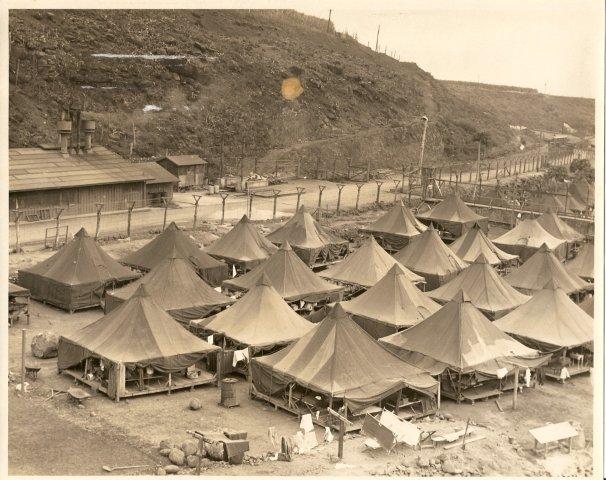Rep. Hanabusa Comments on Anniversary of Forced Relocation of Japanese Americans
The following statement was issued by Rep. Colleen Hanabusa today on the 76th anniversary of the signing of the executive order that led to the arrest and incarceration of more than 120,000 Japanese Americans during World War II.

Honouliuli Camp. Wikipedia Commons photo.
Executive Order 9066, signed by President Franklin Roosevelt on February 19, 1942, authorized the evacuation of all persons deemed a threat to national security from the West Coast to 10 “Relocation Centers” in Hawai‘i, Arizona, New Mexico, California, and Oregon.
Congresswoman Hanabusa’s maternal grandfather, Shigeo Muroda, was taken into custody on the Waianae plantation where he worked as a carpenter who designed the irrigation system and helped found the Waianae Hongwanji Buddhist Temple.
He was sent to the Honouliuli Relocation Center, nicknamed “Hell’s Valley” by the inmates. Her paternal grandfather, Minosuke Hanabusa, a fisherman, was incarcerated in Santa Fe, New Mexico.
In 2015, President Barack Obama designated Honouliuli a national monument, and the National Park Service is currently working to open the 440-acre site to the public.
“The incarceration of Japanese Americans during World War II remains a dark period in American history. What my grandfathers and more than 120,000 men, women and children experienced during a time of war, when dangerous racism and prejudice fueled too many of our policy discussions and outcomes, must never occur again,” said Hanabusa. “The internees of World War II did not often speak of the hardships they endured. Their generation embraced the philosophy of shikata ga nai — which means ‘that’s just the way it is’ and they did their best to gaman, ‘just grin and bear it.’ Their desire to put their difficult past behind them must not dissuade us and future generations from preserving and perpetuating their stories and experiences. That way we can ensure that this type of injustice never happens again.”














